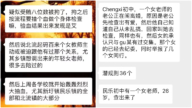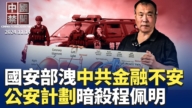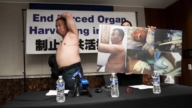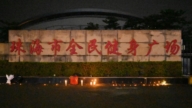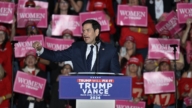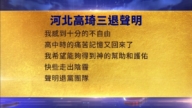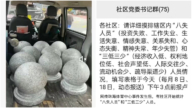【新唐人2013年01月07日讯】《南方周末》同仁声讨广东中宣部长庹震,赢来全中国新闻界以及民众的声援,声势浩大,似乎是要给刚刚履新宣称改革的中共总书记习近平出一个考题。这次宣传部长阉割《新年献词》,究竟是地方官员自作主张,还是得到中央的首肯,新闻界看法不一。有分析说,《南都》表面声讨广东省宣传部长,其实剑指北京新领导层,让习近平在新闻自由上表态。
广东宣传部长庹震,将《南方周末》一篇呼唤实现宪政梦想的新年献词,篡改成肉麻的吹捧文章,引来《南方周末》同仁强烈不满,发公开信要求他下台。
前大公报《大周刊》主笔兼新闻部主任朱健国表示,从最近一系列的紧缩政策来看,这件事不是一个孤立事件,是北京部署的,广东省只是执行。
前大公报《大周刊》新闻部主任 朱健国:“它和前几天网络实名制的禁网,和一系列的紧缩,包括昨天习近平讲的,不能用改革开放三十年否定改革开放前的三十年,这都是一个新的动向。这意味着这个时代可能要有一个大转折了。这个转折可能不是向前,而是向后,向毛泽东时代回归或靠拢,肯定不是向前,他要回归到毛的什么程度。这个有待观察。”
朱健国说,习近平虽然在上任后第一站访问改革开放的发源地深圳,但是实际上做的事情并不是改革。
朱健国:“转变工作作风不是改革,毛泽东时代工作作风比这还要转变的多。真正的改革就是要宽松言论,放松新闻尺度,平反冤假错案,大赦天下,这才是改革。但是他不是这样在做。而是在步步收紧。收紧百姓言论自由空间,收紧新闻自由的空间。”
据《南方周末》编辑部自己透露,《南方周末》2012年被改和被撤的稿件达到1034篇。那么,这次为何反应如此激烈?朱健国认为,《南方周末》同仁其实是借此事件对习近平喊话,敦促他推进新闻自由。
朱健国:“如果《南周》仅仅是抗议广东省委宣传部,我觉得他们这只是一个策略,实际上心里所向是对着北京的,而不是对着省里。”
广东自由作家野火表示,习近平上台多少带来一股新风。比如说他到深圳去,没有封路,这个在社会底层评价很不错。但是他也不可能走得很远。不然他也不可能在总书记宝座上坐得太久。
广东自由作家野火:“我认为他会暂时低调,装聋作哑,他不会完全倒向民意的一边,他毕竟还是党的领袖,党的代表。他如果默认听任民意发展下去,不出来打压,就非常不错了。如果过于乐观的期待他会赞成,会鼓励事态像我们希望的那样发展,那是不切实际的。”
朱健国则认为,习近平新领导层对《南周》的处理将是进一步打压,《南周》只能是再一次败退。
《南方周末》编辑部5号发布最新声明说,两天过去了,事实真相并没有更加清晰,却有越来越多吁求真相的人被禁言。他们呼吁以具有足够公信力的方式成立调查组,彻底调查新年特刊出版事故流程及原因,并公开发布调查报告。
据《美国之音》报导,在上海的独立媒体观察人士赵楚说,这次干预并不是孤立的,而是北京的拍板。另外,《南方都市报》前主编程益中对《德国之声》表示,这次事件让《南方》媒体人找到一个直接反击顶头上司–宣传部的机会。
他表示,中国的希望是寄托在每个人的抗争上,如果没有坚决的抗争,还是靠中共赏赐自由、恩赐言论空间,那是不可能的。程益中说,中共是巨大的利益集团,靠欺骗为生,他们怎么可能主动交出权力、愿意受到制衡?这叫与虎谋皮。
采访编辑/秦雪 后制/君卓
Southern Weekly’s Protest Directed at Beijing?
Southern Weekly’s protest against Tuo Zhen, Guangdong’s
Provincial Party Committee Propaganda leader,
received a lot of support from China’ press circles and civilians.
These strong voices of condemnation became a serious test
to the new Chinese Communist Party’ (CCP) head Xi Jinping.
Was Tuo Zhen’s tampering of Southern Weekly’s New Year
message ordered by local officials or the central authorities?
There are different answers
within the press circles in China.
Analysts believe, the Southern Weekly’ protest against
provincial officials in fact aims at the new CCP leadership.
They want to know what the Xi Jinping stand is
on the issue of press freedom.
Tuo Zhen, the CCP’ Propaganda leader in Guangdong,
recently interfered with the publication of
Southern Weekly newspaper’s New Year Special.
Under his instructions, the original New Year message calling
for realizing China’s constitutional dream was replaced by an article flattering Xi Jinping’s “China dream.”
This led to a strong resentment of the newspaper’s staff,
who requested Tuo Zhen’s resignation in a public letter.
Former news director of Ta Kung Pao’s Big Weekly,
Zhu Jianguo remarked that CCP’s authorities had recently implemented tightening policies.
This suggests that the Southern Weekly incident
is not an isolated case.
Thus, most likely it was the CCP leaders in Beijing,
rather than provincial officials who directed the tampering.
Zhu Jianguo (ex-news director, Ta Kung Pao’s Big Weekly):
”This incident is related to the news of implementing real-name Internet rule and other tightening policies lately.
In addition, Xi Jinping said yesterday that the party’s history
in the 30 years before the economic reform could not be negated by the 30 years afterwards.
These indicate an advent of a new political trend,
which might result in a huge turning point of the era.
However, this might be a step backwards to Mao’s era,
rather than a step forward.
More observations need to be done before we can
conclude to what extent Xi’s retrogression will be.”
Zhu Jianguo remarked that Xi’s first move after taking office
was to visit Shenzhen, China’s economic reform’ cradle.
However, what he actually did
is far from any real reform.
Zhu Jianguo: ”You can’t call changing work ethics a reform.
In Mao’s era there had been even more changes in work ethics.
A real reform should include lifting restrictions on speeches
and the press, rehabilitating unjust verdicts, or announcing amnesty.
However, instead of doing those,
Xi is tightening the policies step by step.
He is implementing more restrictions
on freedom of speech and the press.”
According to Southern Weekly’s editorial office,
the number of tampered or rejected manuscripts of the newspaper in 2012, totals 1034.
Why did they react so strongly this time?
Zhu Jianguo thinks, the Southern Weekly staff tries to
send Xi Jinping a message through this incident, to call him to promote freedom of the press.
Zhu Jianguo: ”Apparently Southern Weekly only protested
against the provincial propaganda department.
However, I think this is a strategic move.
They are actually aiming at Beijing
rather than the provincial government.”
Guangdong freelancer Yehuo remarked that Xi Jinping
had brought some fresh air after coming to power.
For example, Xi didn’t close the road during his visit
to Shenzhen, which was praised by the citizens.
However, it is not possible for Xi to proceed much further;
otherwise he will not be able to hold his position of the CCP’s secretary general.
Yehuo (Freelancer, Guangdong): ”I believe that he
(Xi Jinping) will temporarily act in a low-key manner and pretend to be ignorant.
After all he is the leader of the party,
so he will never fully support the will of ordinary people.
If he simply ignores the surging public opinions,
and does not suppress them, that would be good enough.
It is unrealistic to over-optimistically expect him
to support or encourage what we expect to see.”
Zhu Jianguo predicts that Xi and the new CCP leadership
will further suppress the Southern Weekly’s protest.
The outcome of the incident can only be
a retreat of the newspaper once again.
On January 5th, Southern Weekly’s editorial office stated
that the truth of the incident had not become any clearer.
On the other hand, more people seeking the truth
had a ban on their speech.
They called for a credible investigation group to look
into the incident, and announce the results publicly.
VOA interviewed Shanghai independent media observer
Zhao Chu on the incident.
Zhao remarked that the tampering was not an isolated case
and was directly commanded by the central government.
Former chief editor of Southern Weekly Cheng Yizhong
spoke to Deutsche Welle about this case too.
Cheng said, the incident gives the newspaper a chance
to strike back at their boss, the propaganda department.
Cheng remarked that China’s bright future lies
in the resistance of every Chinese against the dictatorship.
Begging the CCP for more freedom of speech instead
of firmly resisting it is simply impossible to succeed.
Since the CCP itself is one big interest group
which can only survive by telling lies,
how can one expect them to give up the power voluntarily,
and be willing to accept any restrictions?
That is nothing different from negotiate with a tigerfor its skin.


